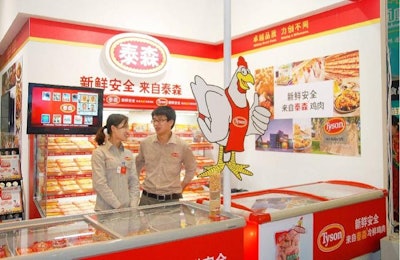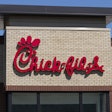
Human health concerns amid the coronavirus outbreak in China could play a role in speeding up the transition from poultry sold at wet markets to a more modern retail grocery setting, Tyson Foods CEO Noel White said.
White addressed the coronavirus situation while speaking during a quarterly earnings call on February 6.
Since Tyson Foods has production facilities in China and is exporting more product to China following the country’s ban on U.S. poultry, the company has been “closely monitoring the coronavirus situation,” White said.
When asked by one analyst if fears from the disease outbreak would mean fewer wet market sales of poultry and more retail grocery sales of poultry, White said he believed it could expedite a transition that is already in place.
“I think if anything, it’s just going to accelerate the efforts that the Chinese have had to decrease the number of wet markets. I think we’ll continue to see modern grocery continue to grow in China, so it’s an acceleration. I think both [African swine fever] and coronavirus will contribute,” White said.
Tyson Foods is actively pursuing opportunities to serve the Chinese consumers during its transition to modern grocery store settings, said White.
Cornavirus’ impact on Tyson not yet known
White said the company does not presently know what the financial impact of the coronavirus outbreak will be on Tyson Foods. However, he expected there would be “some impact” on the short term, but he added “that will pass.”
White added that the company had been working with the Chinese government amid the coronavirus scare, and said that it has “successfully restarted operations,” in the country that were temporarily halted.
Tyson Foods, prior to its 2018 acquisition of Keystone Foods, had earlier had a presence in both China and India, but it furthered its presence in Asia with the acquisition. It’s presence in Asia grew even more in 2019 with the acquisition of BRF’s facilities in Thailand and Europe.
Tyson Foods, according to the WATTAgNet Top Poultry Companies Database, is the second largest poultry company in the world. It is headquartered in Springdale, Arkansas.
View our continuing coverage of the coronavirus/COVID-19 pandemic.

















